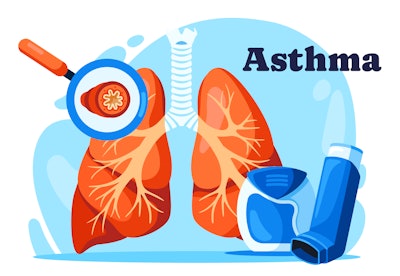
Excessive use of short-acting beta-agonists (SABAs) — commonly known as “rescue inhalers” — is more likely to cause adverse effects in asthma patients, including death and more severe attacks, according to researchers at the Perelman School of Medicine at the University of Pennsylvania in Philadelphia.
The systemic review and meta-analysis, “Adverse Outcomes Associated With Short-Acting Beta-Agonist Overuse in Asthma: A Systematic Review and Meta-Analysis,” was published in the European Journal of Allergy and Clinical Immunology. The findings suggest that patients who use three or more SABA inhalers per year face a twofold increase in mortality and nearly double the risk of acute exacerbations compared to those who use fewer.
The study examined data from 27 studies (two randomized controlled trials, 13 cohort studies and 12 cross-sectional studies) across six continents and supported the 2019 Global Initiative for Asthma (GINA) guidelines, which no longer recommend SABA monotherapy due to its lack of anti-inflammatory effects. Instead, GINA recommends the use of combination therapies using inhaled corticosteroids (ICS). In some countries, up to 63% of asthma patients were found to overuse SABAs, researchers noted.
Researchers also said that SABA overuse often reflects poor asthma control and underuse of ICS, suggesting that better adherence to controller medications could reduce reliance on rescue inhalers.
Underscoring their belief in the need to change the culture of asthma care and prioritize long-term control over short-term relief, the authors urged health care providers to monitor SABA prescriptions closely and educate patients on proper asthma management. They also called for further research into the biological mechanisms behind SABA-related risks and the development of policies to curb overprescription.






















